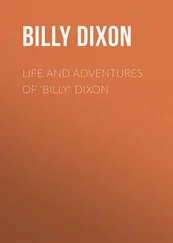Stephen Dixon - Love and Will - Twenty Stories
Здесь есть возможность читать онлайн «Stephen Dixon - Love and Will - Twenty Stories» весь текст электронной книги совершенно бесплатно (целиком полную версию без сокращений). В некоторых случаях можно слушать аудио, скачать через торрент в формате fb2 и присутствует краткое содержание. Год выпуска: 2013, Издательство: Dzanc Books, Жанр: Современная проза, на английском языке. Описание произведения, (предисловие) а так же отзывы посетителей доступны на портале библиотеки ЛибКат.
- Название:Love and Will: Twenty Stories
- Автор:
- Издательство:Dzanc Books
- Жанр:
- Год:2013
- ISBN:нет данных
- Рейтинг книги:4 / 5. Голосов: 1
-
Избранное:Добавить в избранное
- Отзывы:
-
Ваша оценка:
- 80
- 1
- 2
- 3
- 4
- 5
Love and Will: Twenty Stories: краткое содержание, описание и аннотация
Предлагаем к чтению аннотацию, описание, краткое содержание или предисловие (зависит от того, что написал сам автор книги «Love and Will: Twenty Stories»). Если вы не нашли необходимую информацию о книге — напишите в комментариях, мы постараемся отыскать её.
Love and Will: Twenty Stories — читать онлайн бесплатно полную книгу (весь текст) целиком
Ниже представлен текст книги, разбитый по страницам. Система сохранения места последней прочитанной страницы, позволяет с удобством читать онлайн бесплатно книгу «Love and Will: Twenty Stories», без необходимости каждый раз заново искать на чём Вы остановились. Поставьте закладку, и сможете в любой момент перейти на страницу, на которой закончили чтение.
Интервал:
Закладка:
Hot enough for you?” the man says, neither of them stopping.
“I’ll tell you, worse than it was where I drove up from.”
They’ve smiled at one another, now pass one another. Will continues to the end of the cove. The man continues to the other end. Every now and then one of them looks back at the other. One time each looks back at about the same time and sees the other looking at him.
“Caught me,” Will says.
Just looking, the other man thinks — not having much else to do, so just looking. But he doubts, knowing what he knows about him and his wife, that he’s the type to mind somebody crossing his beach property which really isn’t his. Which really isn’t anybody’s but everybody’s, one could say. Say, that’s not bad, even if he really means from the high water mark down. He just wishes his stepfather was the type to also believe it.
The man continues to the end of the cove and then goes around it and heads for the stairs in the middle of his stepfather’s cove. When Will looks back again he doesn’t see the man. On the next cove, he thinks. For a while he didn’t want to look back because he didn’t want to get caught again and have the man think he was spying on him. The man looks back again but only when he hears a seagull squawking. The gull flies over his head, dives to about fifteen feet of him, sweeps up, circles him twice — all the time squawking fiercely at him — and then flies back to the end of the cove and settles on a rock and seems to stare at him. He must have got too close to its nest, he thinks, when eggs or chicks were in it. Then he tums back to the stairs when he hears his grandchildren approaching them from the road. No, go back again. Two men. Maine. Its northern coast. Hot. Humid. Morning. Beach. Cove. Lobster boat dropping a trap about three hundred feet out in the water. No. One man, no boat, dusk, northern coast, cooler, orange-green striped sky. The man sits on a rock in front of a boathouse in the middle of the cove. He’s tired. He did a lot of work today. Fenced in the porch, built two gates for it, scythed the overgrown grass around the cottage and then mowed it, two car trips to a town twenty miles away to get fencing and gate materials and a lawnmower part. He’s holding a gin and tonic. He’s showered and changed clothes and in a half-hour he’ll have dinner. He’s already cooked for his wife and himself and all he has to do when he gets back to the cottage is heat up the pot on the stove and take out the pan in the oven. He looks at the lobster boat in the water. Too far from shore and late in the day to be lobstering so probably going home. He thinks of the man he saw on the cove before. He was walking behind a woman and four children and a dog. He only had a baby with him. The baby wore a blue bonnet and pink overalls and the man with the drink in his hand couldn’t tell if it was a girl or boy. The men said hello to each other, then passed one another. The man with the drink was returning from a short walk to the end of the cove. The man holding the baby looked familiar — not someone he knows personally or knew long ago but a public personality perhaps — an author, politician, TV newsman, someone whose face has been in the news lately, maybe a stage or movie actor. Back again. No men passing, no man on the beach. A quiet cove, except for a lobster boat far out in the water. Dusk, multicolored striped sky. No boat. Plain sky. Just a buoy ringing. No buoy. No sounds. Maybe the wind passing through the trees that line the cove. No wind. Trees along the cove stay. The old boathouse stays. A half-filled glass on a rock in front of the boathouse. The ice in it melted. A slice of lime in it.
The Painter
So the great painter dies. Within minutes of his death the colors disappear from his paintings, the canvases crack and come apart, the frames fall to the floor. Millions of dollars worth of paintings, perhaps a billion dollars worth, are gone. Museum curators summon the police. Private collectors of his work—
No, the painter dies. The great one. Nobody would dispute that. Nothing happens to his paintings after his death. What does change is their value. One painting up for sale that day with an asking price of close to a million dollars, suddenly has an asking price of two million. A private art collector, interviewed on TV that night, says “When I bought this red one ten years ago for a hundred thousand, friends in the know said I paid twice what it was worth. Just a month ago an art dealer offered me five times that amount. Now with his death — not that I don’t grieve for him like the rest of us and think, if he was alive and healthy, what he could still do — I could probably get—”
No, the painter dies. The great one. Almost every artist and art expert agrees with that. The paintings he had in his studio will be exhibited this year in a major European museum and then travel to five of the top modern museums in the world before being put on the market. The heirs, to save on paying an estimated hundred million dollars in taxes, have made arrangements with the government where half the paintings—
No, the painter dies. We all know who. The great one. The greatest or second greatest painter in the last fifty years. Certainly one of the five great painters of the century. At least one of the ten great ones in the last hundred years. Definitely one of the ten great ones, of this century, and one of the most influential painters of all time. What modern art movement in the last sixty years hasn’t been influenced by him? Maybe some haven’t. There have been so many. But five, maybe ten of the major art movements in the last sixty to seventy years have been directly or indirectly influenced by his work. He died in his sleep last night at the age of ninety-one. Ninety-one years old and still painting. The painting he was working on for the last two months was to be one of his largest. Art dealers say the asking price for it, though it’s little more than half finished, will be around three million dollars, which will be one of the highest sums paid for a modem painting if it’s sold at that price.
No, he’s dead. The painter of the century. Or one of them. The day he died — he knew he had little time left, his wife said — he asked her to destroy the painting he was working on. He also asked her to write down his last words. They were “I didn’t paint any of the paintings that bear my signature, nor any painting that is said to be mine but doesn’t have my signature.” All his paintings bear his signature. He then gestured that he wanted to sign his name to the words she wrote down. His son held his writing hand as he wrote his name. Then he said he’d like a glass of his best champagne and some cherries. His wife went for them. By the time she got back he was dead.
No, he died. In his sleep. A peaceful death. Painting he was painting on before he got sleepy and had to be put into bed was of a man sleeping in bed. A dead man, it looked like. Didn’t look like an ordinary sleeping man. That’s what just about everyone said when the painting was later viewed at an auction house before it was sold for more than three million dollars.
No, he’s dead. His paintings aren’t. They live on on whatever walls they’re on. The colors haven’t faded. Nor the themes. They’re still alive.
No, they’ve all faded, colors and themes. The painter for the last week was fading, now he’s dead. Died in his sleep. He was drinking champagne at the time. No, can’t be.
Dead. The painter. Had a glass of champagne in his hand. He was awake when the glass dropped out of his hand. Or was awake just a moment before the glass dropped out of his hand. His wife, who had her back to him at the time, turned when she heard the glass smash on the floor. Her husband was slumped across the bed, hand dangling just above the floor. She called for her son. “Jose!” He ran into the room. He’d been in bed with the housekeeper in her room a floor above. Two floors above.
Читать дальшеИнтервал:
Закладка:
Похожие книги на «Love and Will: Twenty Stories»
Представляем Вашему вниманию похожие книги на «Love and Will: Twenty Stories» списком для выбора. Мы отобрали схожую по названию и смыслу литературу в надежде предоставить читателям больше вариантов отыскать новые, интересные, ещё непрочитанные произведения.
Обсуждение, отзывы о книге «Love and Will: Twenty Stories» и просто собственные мнения читателей. Оставьте ваши комментарии, напишите, что Вы думаете о произведении, его смысле или главных героях. Укажите что конкретно понравилось, а что нет, и почему Вы так считаете.












